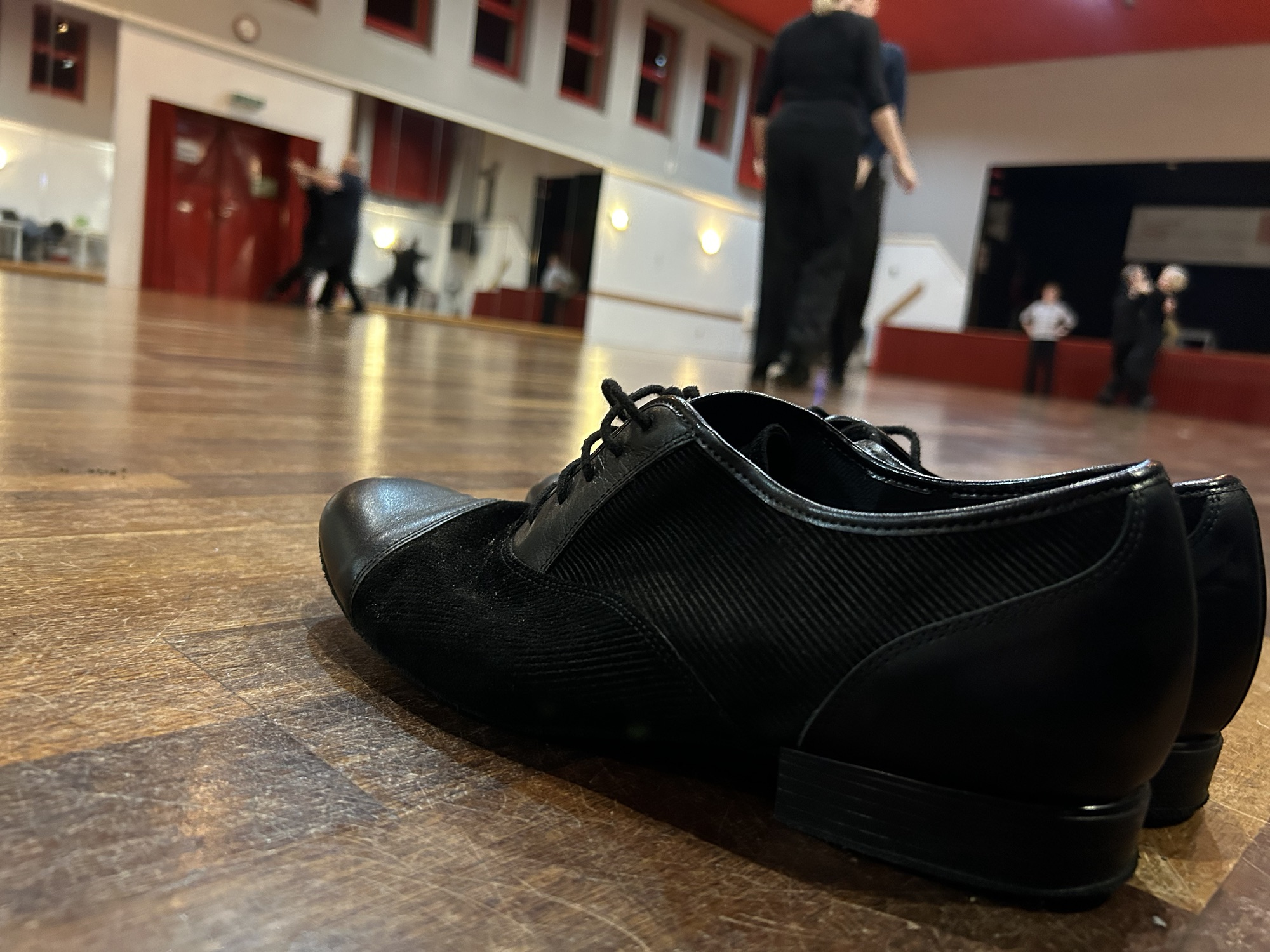I wrote about learning Salsa and Bachata over a year ago and fully intended to follow up quickly with a post on Ballroom dancing (Standard und Latein). Seems I was over ambitious!
Dancing is really quite a big deal in Germany compared to other countries in Europe. The many salsa/bachata schools are full of new learners and the clubs are packed. But at the same time, many people in Germany have their first dance experience at high school in preparation for the Abi-Ball (graduation ball). Quite a few high schools offer basic dance courses in preparation so many people already understand the basics of ballroom dance when they head back to class years later.
I have been dancing quite a few years now and really had the chance to bounce around and test every where. I have actually been to and tried out all of the places mentioned in this post. Some were just a trial, others for full course or longer term membership. The ballroom dance scene is divided into two types of providers, the dance schools (Tanzschule) and the dance societies (Tanzsport Vereine). The basic difference is that the dance schools offer commercial and well structured social dance classes, where as the societies offer monthly memberships with a variety of locations and classes that you can drop in to when you want.
The societies tend to really look down on the dance schools for not taking the sport seriously. There are many complaints about the quality of the teachers and education. On the other hand, the societies while offering great value for money, are terrible at helping beginners get into dancing as there is no structure for complete beginners. You never know who will actually attend each class so the teachers never really start low enough for beginners. I have seen too many beginners dropout before they get going because they feel out of place.
The basic logic is as following: start with a dance school and learn enough of the basics so that you can switch to a society/verein as soon as possible.
Dance Schools
The two best known dance schools in the city are Wernecke’s with locations at Eschenheimer Tör and Südbahnhof, and Monika Bauer with a studio in Bahnhofsviertal. Both offer beginners courses following the ‘world dance programme’ (Welttanzprogramme) so the schools classes are interchangeable. After beginners (10 weeks) and advanced (10 weeks) you move on to the medals (roughly another 10 weeks for each level bronze, silver, gold and goldstar). Each level has a little optional exam at the end in competition format. THe schools organise the classes slightly differently but the timing needed to progress and cost (average €20 a class) about the same. Both schools also offer an open Sunday evening party for practicing.
A key problem with both schools (and other less well known schools like Taunus Tanz! in Oberursel and Kronberg) is that the rooms are quite small. Once you get more advanced, you’ll find yourself constantly bumping into people and pillars. Monika Bauer’s is especially annoying with pillars when you have a fast dance.
The exception to this the Karabey school in Bad Homburg. Not only did the Karabey family produce some German national champions but the school is really spacious and good provision of classes. They are also very strict on posture etc, so don’t expect an easy ride! But I highly recommend it if you can get there. Very limited parking and not so close to public transport.
Vereine / Societies
Frankfurt is home to a few dance societies including the largest in Germany, Schwarz-Silber. They have about 600 members who pay €30 a month and can attend as many classes and free training sessions as wanted. They offer weekly classes in Sossenheim, Bornheim, Fechenheim and Hofheim (so Bornheim is definitely most useful) and free training in all of the above plus Sachsenhausen and Höchst. The website and organisation is all very German and old-school, but I managed to navigate it well enough with the help of the occasional german speaking dance partner :). The classes are split between social dancing and tournament training, the latter of which have some really excellent professional teachers.
After Schwarz Silber, there is a whole host of smaller societies inside Frankfurt and neignbouring towns. For a full list, go to the Hessen Dance Association. There are 12 societies registered in Frankfurt alone, and most seem to have access to larger, multi-use community halls and former professional dancers who now teach part-time.
Finding a dance partner
I covered this detail under the previous post on salsa, but the logic is the same. Dancenow.net and Tanzpartner.de are the places to go. However, for beginners, there are also singles classes at most dance schools so you can just turn up. But beware, you can end up with some odd partners. Luckily, the teachers will keep rotating the pairs so you won’t have to dance with the same person for more than a few minutes at a time!
Did you spot a mistake or broken link? Leave a comment and let me know!

